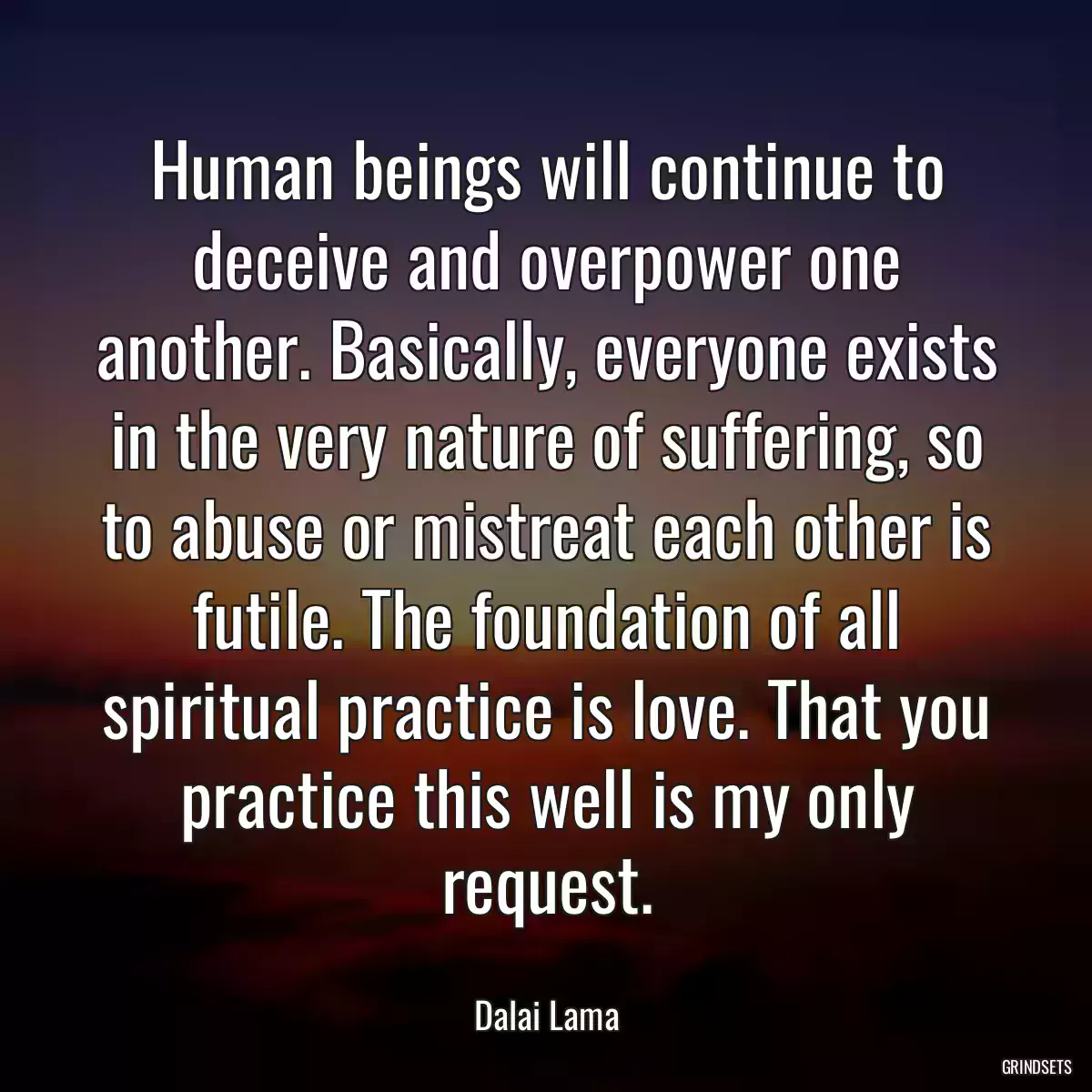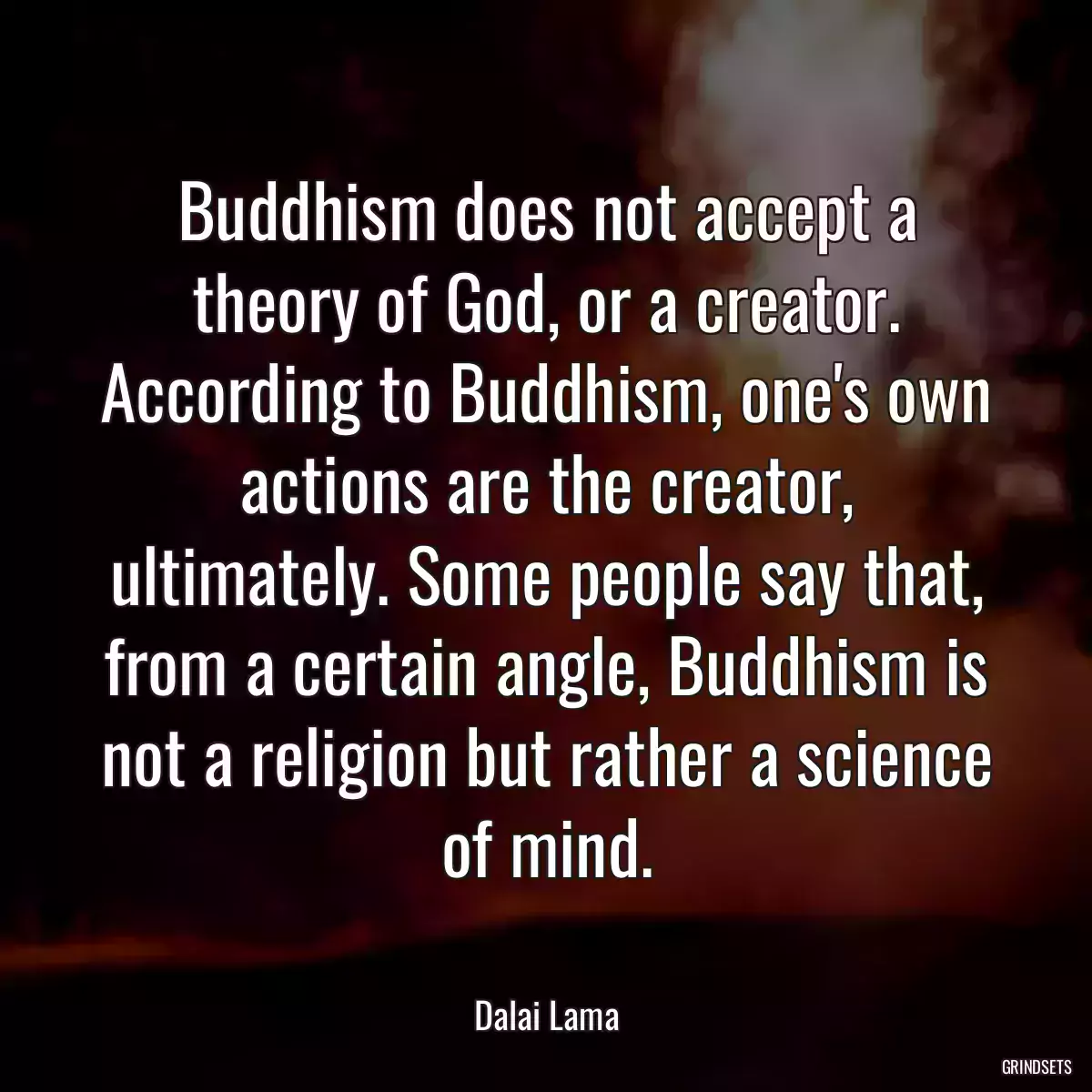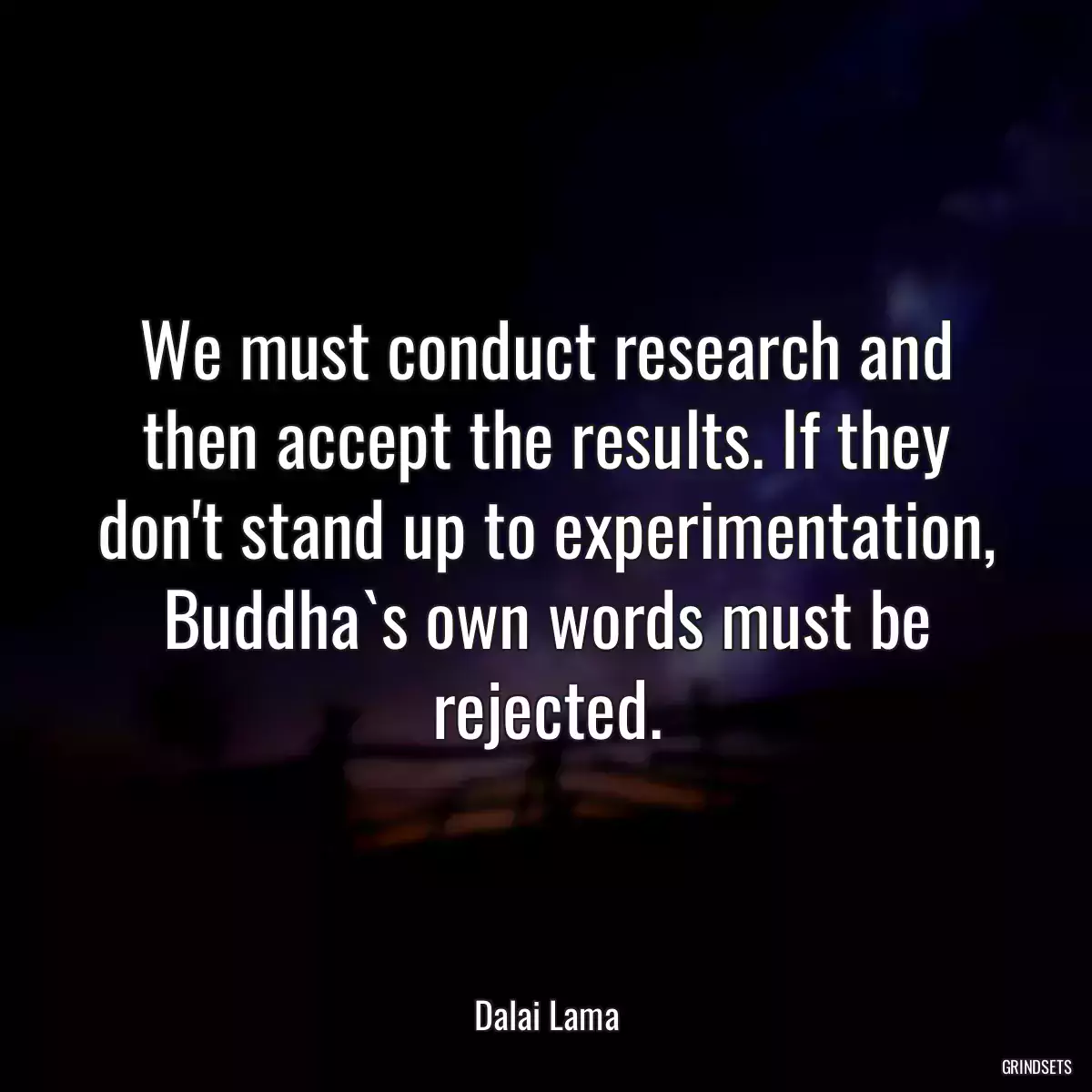
Quotes Dalai Lama - page 8
Find dozens of Dalai Lama with images to copy and share.

Just as we take for granted the need to acquire proficiency in the basic academic subjects, I am hopeful that a time will come when we can take it for granted that children will learn, as part of the curriculum, the indispensability of inner values: love, compassion, justice, and forgiveness.
In spiritual growth, it is important to avoid imbalances between academic or intellectual learning and practical implementation. Otherwise there is a danger that too much intellectualiza tion will kill the more contemplative practices and too much emphasis on practical implementation without study will kill the understanding. There has got to be a balance.
We need an approach to ethics which makes no recourse to religion and can be equally acceptable to those with faith and those without.
You may also like
When we face problems or disagreements today, we have to arrive at solutions through dialogue. Dialogue is the only appropriate method. One-sided victory is no longer acceptable. We must work to resolve conflicts in a spirit of reconciliation and always keep in mind the interests of others.
When you lose, don't lose the lesson.
In today’s interconnected and globalized world, it is now commonplace for people of dissimilar world views, faiths and races to live side by side. It is a matter of great urgency, therefore, that we find ways to cooperate with one another in a spirit of mutual acceptance and respect.
Don't ever mistake my silence for ignorance, my calmness for acceptance or my kindness for weakness. Compassion and tolerance are not a sign of weakness, but a sign of strength.
We can never obtain peace in the outer world until we make peace with ourselves.

We must openly accept all ideologies and systems as a means of solving humanity's problems. One country, one nation, one ideology, one system is not sufficient.
In twenty years' time I'll be eighty-three, just an old man with a stick moving like a sloth bear. While I'm alive, I am fully committed to autonomy, and I am the person who can persuade the Tibetan people to accept it.
If we had to accept the idea of an independent creator, the explanations given in [several Buddhist texts] which completely refutes the existence per se of all phenomena, would be negated.
If there were really serious consequences if I did not accept, then of course I would do whatever was necessary. But in general I really prefer some freedom.
China can keep her troops on the external frontiers of Tibet, and Tibetans will pledge to accept the appropriate form of union with China.
Basically, the Buddhist attitude is that you should not accept certain things through sheer faith. And for that you need a skeptical attitude. Buddha himself made this clear to his followers. He said you should not accept those things I taught out of respect for me, but rather through investigation by yourself.
Your own pain is involuntary; you feel overwhelmed and have no control. When feeling the pain of others, there is an element of discomfort, but there also is a level of stability because you are voluntarily accepting pain. It gives you a sense of confidence.
As a Buddhist, I view death as a normal process, a reality that I accept will occur as long as I remain in this earthly existence. Knowing that I cannot escape it, I see no point in worrying about it. I tend to think of death as being like changing your clothes when they are old and worn out, rather than as some final end. Yet death is unpredictable: We do not know when or how it will take place. So it is only sensible to take certain precautions before it actually happens.
You may also like

It is in everybody's interest to seek those [actions] that lead to happiness and avoid those which lead to suffering. And because our interests are inextricably linked, we are compelled to accept ethics as the indispensable interface between my desire to be happy and yours.